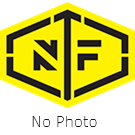| Tools | |
|---|---|
| Model | |
| Room | Metalworking Room |
| Work envelope/max capacity | |
| Link to manual | |
| Related tools | |
| Trainer(s) | No Training Available |
| Training Sessions | no training sessions include this tool |
| Knowledge keeper(s) | |
| Training document(s) | |
| Material Safety Data Sheet (MSDS) | |
| Safe Work Procedure | |
| Consumables | |
| Software | this machine has no software listed |
| Equipment type | tool |
| Metalworking Room Precautions apply |
|
You will be working in the Metalworking Room . In order to keep safe from hazards created by you or other workers using any of the tools in this room, the following precautions apply in addition to any other precautions: Housekeeping
|

